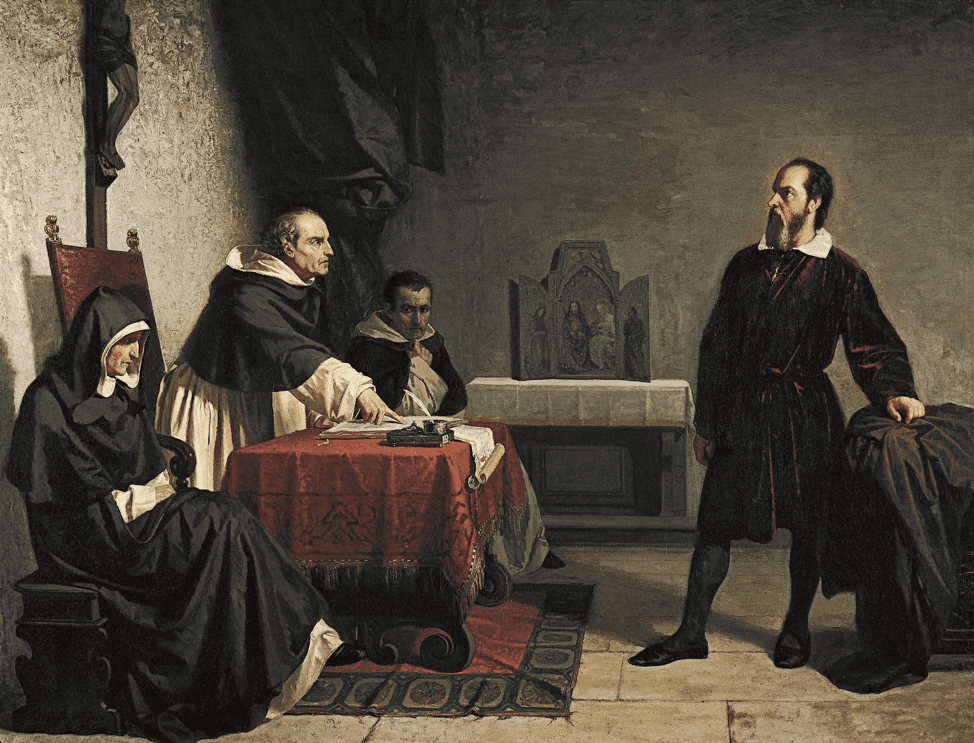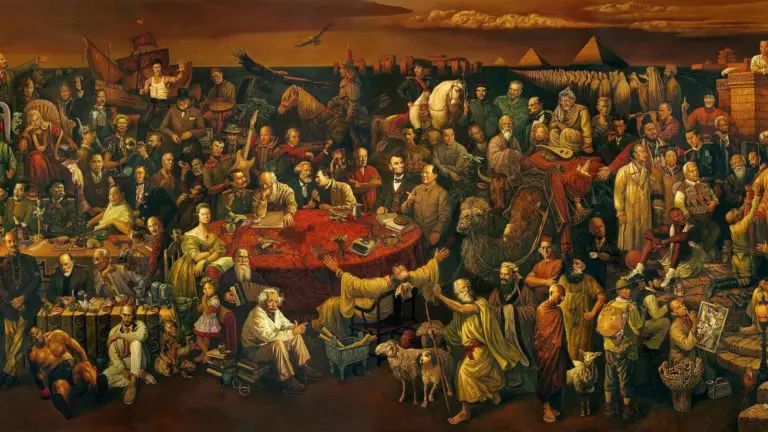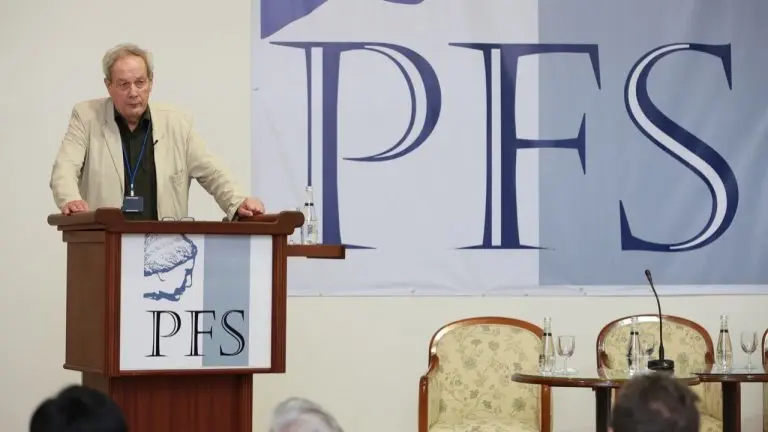The Law as the Good
Before the code of Hammurabi could be written, the law was. There have always been underlying metaphysical principles that have underpinned our universal ethic, and for millennia these were accessible and enforced. They governed the heart of every man and flowed smoothly from the dictates of natural reason. Many today understand this as the natural law, which legitimizes the protection of what we consider ‘fundamental’ rights. The early Platonist writings sought to solidify and formalize this philosophical observation by introducing the Form of ‘the Good.’ Here, Plato posited that there existed a metaphysical ideal-type of the Good––a perfect conception of the True, the Just, and the Beautiful, which could be transmitted into and entrenched within society by way of a Philosopher King. But with Ancient Greece an age past, and our world fully engaged in a soulless materialism, Western civilization has aboundingly rejected Plato’s initial proposition. Instead, it has advanced the claim that our political and legal systems ought to be mere reflections of the whimsical and frequently twisted desires of those who show up on voting day.
This positivization of politics and law has given rise to some fundamental flaws in our societies: it has killed God, turned history into farce, and weakened the basis upon which our theoretical legal structures have been built. My goal in this essay will be to map out these issues and provide a (re)constructive solution by redefining the role of a central, interpretative pillar in society: the judge.
Dastardly Jurisprudence––The Killing of God
The 20th century was an age of counter-revolution in jurisprudence. In 1971, under the newly birthed 5th French Republic, the Conseil Constitutionel recanted the fundamental claim that French laws existed “in the presence and under the auspices of the Supreme Being”––as had once been enshrined in the Declaration of the Rights of Man and Citizen during one of the nation’s founding moments. Here, the Court reduced the universal value of the Declaration, which found its inspiration in the Neoplatonic Good, to merely one of the many facets constituting the socio-historical values and history of the French people. In other words, the temporal will of the nation, of the imagined community, was prioritized above the True, the Good, and the Beautiful. All that once fueled incessant revolution, justified the rolling of monarchical heads, and had the upshots of undermining tyranny in the name of life and liberty, was rendered subjective. As such, by rejecting what actually gave substantive and metaphysical value to the Republic, the Constitutional Court implicitly asserted that France, and thus its history, was built on tragedy and farce.
But France was not alone in its attempt to murder God and betray what gave true meaning to its founding. Academia in the United States arguably faced even more dire challenges. The jurist Hans Kelsen popularized the notion of legal positivism in American intellectual discourse with the reductive aphorism that “justice is social happiness.” In effect, Kelsen advanced the postmodern case that justice is a fiction, that there is no value to striving for the construction of a ‘good’ society, and that the only source of constitutional legitimacy was the feelings and acceptance of people at any given time. And though the founders once proclaimed that “[men] are endowed by their Creator with certain unalienable Rights,” Kelsen not only called on us to forget this but shaped all constitutional discourse in the image and likeness of a bland textualist humanism. The consequence? We have forfeited the preservation of the most central part of statehood, human dignity, yielding it to the will of unchecked representatives.
It is in constitutional discourse that we have begun to bear the brunt of this 20th Century intellectual folly. Americans today are in a dictatorship of no alternatives, stuck between the false dichotomy of originalism versus living constitutionalism in judicial review––both of which ignore the reason for and nature of law: to produce what really is good for the human person. The former, originalism, constrains us to a blind, needless, almost pagan worship of our ancestors’ societies. The latter, living constitutionalism, pushes a relative and societal view of ethics onto the general population––making no appeal to objective morals. Thus, in sidelining such a core principle—putting history or moral representation on an altar to be worshiped above the good—the Americans too are killing God.
Hopefully the above has managed to shed light on the crisis of legal interpretation facing us today: that we have siphoned out all true and eternal meaning from the foundations of our societies, rendering the law which binds us together in agreement not only fictitious and a non-reflection of the Good, but relative to the specific ages of specific societies. Consequently, in most of the West, we have trivialized our constitutions, our rights, and thus, our dignity. After all, if the law means nothing above what is enshrined, reflects nothing more than the will of an arbitrary people, and stands for nothing but the echoes of an arbitrary time––then for what reason should it stand?
With this, I hold that it is time to be done with any and all strands of textualist humanism. At last, we ought to push for a new approach to constitutional interpretation to come to light: one which sees the Transcendent in the texts which it analyzes.
Sanctifying a Fallen Society––A Framework for the Judge
The contemporary judge has the important duty of upholding not only the codified law, but likewise the essential principles which underpin it––ensuring that society is ordered towards the good. However, this brings several questions that need to be addressed. The first of which is: what should the framework for legal interpretation be, so that this lens does not become an excuse for defunct courts to apply their own views to society?
For the legal philosopher John Finnis, the answer to this quest of deriving an absolute interpretive framework can be answered through the protection of what he called basic goods—life, knowledge, sociability of friendship, play, aesthetic experience, practical reasonableness, and the transcendental. He argues that all of these are necessary for the development of a virtuous and fulfilled life, which makes them not only desirable but necessary for human flourishing. Thus, their justification comes from the fact that any human being would understand the underpinning premise, which is that the pursuit of basic goods as ends in themselves is, indeed, valuable. For instance, taking the example of aesthetic experience as a basic good, no serious person would ask why you were going to the Louvre in your visit to Paris; the notion of spending your time appreciating Veronese’s Nozze di Cana or Delacroix’s Liberté Guidant le Peuple would be a sufficient justification for any person to comprehend the act’s moral legitimacy without asking further questions. The same could not be said about the claims of a person intent on suicide. Hence, laws that protect and promote the arts would be seen as advancing a basic good and therefore should be upheld by the courts as ‘constitutional.’ In contrast, euthanasia laws—given that they entail the intentional ending of a human life, and thus violate the basic good of life—should be struck down by the courts.
With this framework for interpretation established, a key point still needs to be ironed out. This legal lens ought to be negativistic in order to ensure that abuses of power are not taking place, especially should the courts flip towards an unfavorable majority. Here, the judge necessarily takes the position of ensuring that society is ordered towards something approximating the good precisely by ensuring that it is not ordered towards the bad. In this way, the judge can be a last stand against widespread societal sin, restoring balance to justice when we fall on our swords. To facetiously invoke Jürgen Habermas of the Frankfurt School, the judge makes it clear that some rights are simply not on the table for discussion.
Conclusion
My case is thus a simple one. We need to reconsider how the judge cannot be reduced to a mere instrument of ‘applying the law.’ However, while I do not hold that this role should be wholly relinquished in instances where the law does reflect the good, I do believe that there is far more underpinning a healthy society than mere positive law––and the judge holds the best of all governing positions to act as an intermediary between the Form of the Good and the execution of law.






